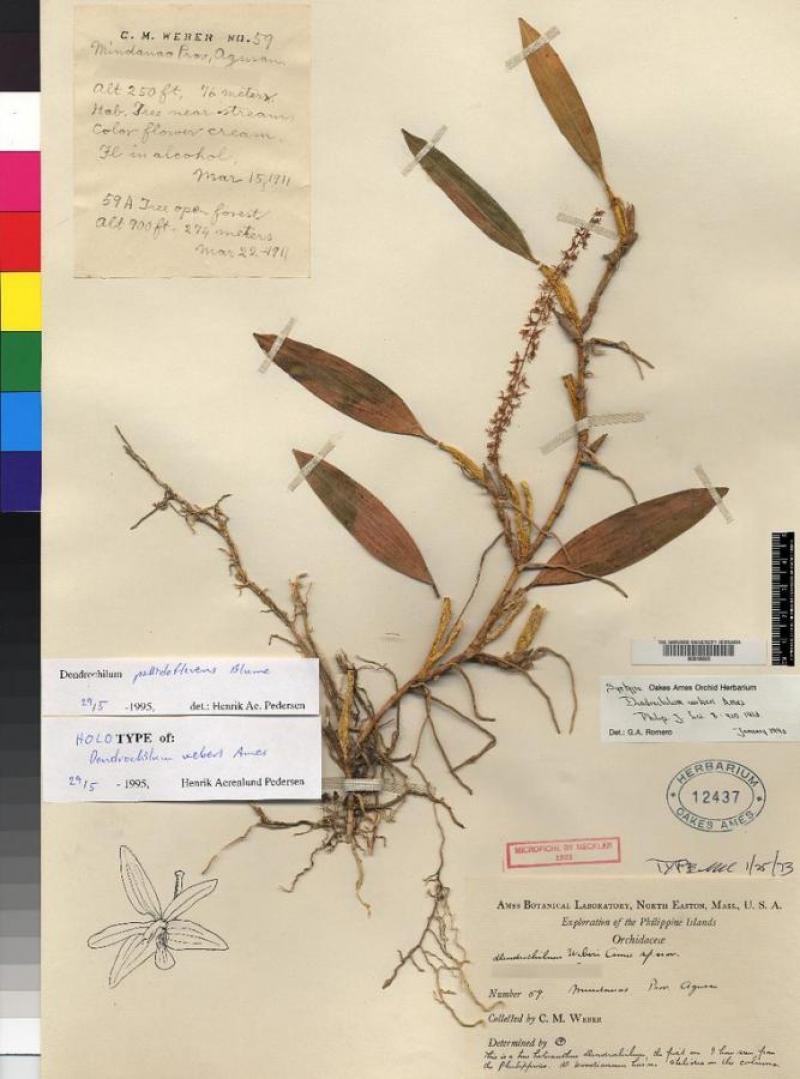Dendrochilum pallidiflavens
Also known as: The Pale Yellow Dendrochilum or Platyclinis brevilabrata Acoridium brevilabratum Dendrochilum pallidiflavens var. oblongum Dendrochilum pallidiflavens var. pallidiflavens Dendrochilum pallidiflavens var. brevilabratum Dendrochilum album var. acutifolium Dendrochilum weberi Dendrochilum spathulatum Dendrobium ridleyi Dendrochilum aurantiacum var. pallidiflavens Dendrochilum ellipticum Dendrochilum conopseum Dendrochilum bulbophylloides Dendrochilum brevilabratum var. petiolatum Dendrochilum brevilabratum Dendrochilum album Dendrochilum micranthum Dendrochilum pteriphilum Dendrochilum intermedium Bulbophyllum pteriphilum Dendrochilum viride Dendrochilum pallideflavens in the subfamily: Epidendroideae
Native to: Malaysia Philippines Thailand
General Information
The Pale Yellow Dendrochilum is a warm to hot growing epiphytic orchid belonging to the sub family Epidendroideae native to Malaysia, Philippines and Thailand.
Plant Description
Each new growth has a single erect arching, rigid, lance shaped leaf. The plant tends to climb or sprawl with each new growth
Flowers
Numerous fragrant blossoms appear during Autumn and Spring
Fragrance
The orchid is fragrant.
Blooming Season
- Autumn
- Spring
Care Notes
These orchids have a fine root system that can quickly die back if left dry for too long, but also does not like to be kept wet, so water regularly but ensure that the mix is dry before watering.
Fragrant:- IsFragrant
Climate
Grows at low to high elevations.
Fertiliser
These plants do well with slow release fertiliser at the rate of 2-3 pellets per cup (250ml) of media. Additional fertiliser during the growth period may be beneficial, but not necessary.
Potting
These plants are quite forgiving and will do well repotted ever 2-3 years. The mix should be coarse, well draining, and allow space for air to move and for roots to grow.
Alternatively, these plants will also do well mounted to tree fern or cork slabs, or mounted to trees.
Best time for repotting or mounting the orchids is the end of winter when new growths start to appear. Avoid repotting during hot weather,


